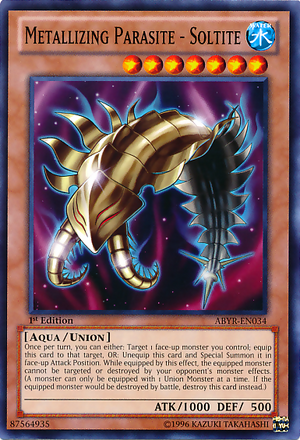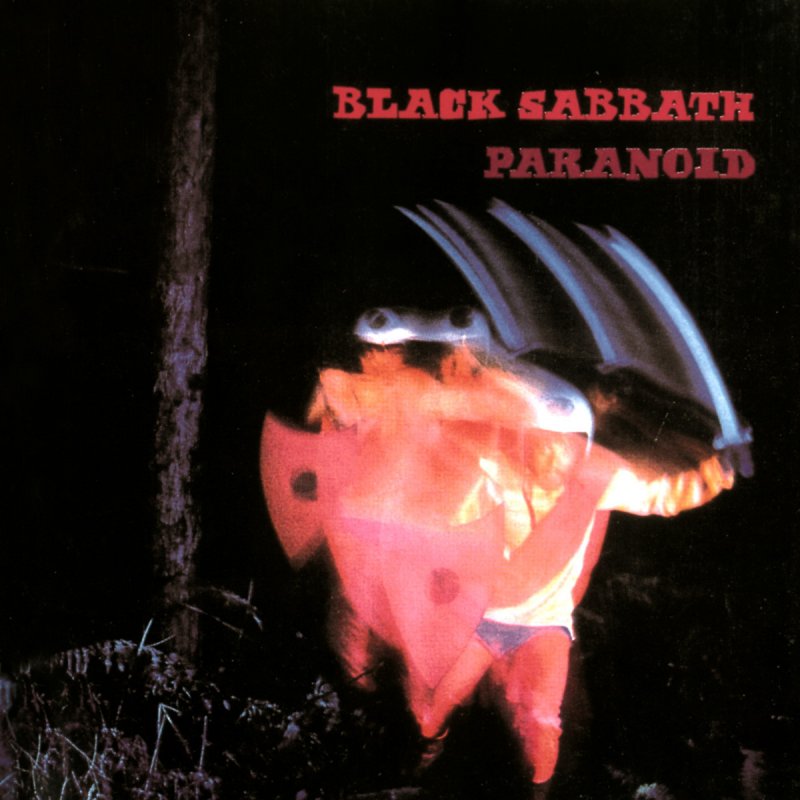Paranoid In Spanish Translation
| Paranoia Agent | |
| 妄想代理人 (Mōsō Dairinin) | |
|---|---|
| Genre | Psychological thriller,[1]satire[2] |
| Created by | Satoshi Kon |
| Anime television series | |
| Directed by | Satoshi Kon |
| Produced by | Rika Tsuruzaki Mitsuru Uda Hideki Gotō Yasuteru Iwase Tokuji Hasegawa |
| Written by | Seishi Minakami |
| Music by | Susumu Hirasawa |
| Studio | Madhouse |
| Licensed by | |
| Original network | WOWOW |
| English network | |
| Original run | February 2, 2004 – May 18, 2004 |
| Episodes | 13 (List of episodes) |
| Novel | |
| Written by | Satoshi Kon Yuichi Umezu |
| Published by | Kadokawa Shoten |
| Imprint | Horror Bunko |
| Published | May 2004 |
Define paranoid. Paranoid synonyms, paranoid pronunciation, paranoid translation, English dictionary definition of paranoid. Psychiatry Relating to, characteristic of, or affected with paranoia. Exhibiting or characterized by irrational distrust or suspicion of others. Spanish Translation of “paranoid” The official Collins English-Spanish Dictionary online. Over 100,000 Spanish translations of English words and phrases.
Paranoia Agent (妄想代理人Mōsō Dairinin) is a Japaneseanimetelevision series created by director Satoshi Kon and produced by Madhouse about a social phenomenon in Musashino, Tokyo caused by a juvenile serial assailant named Lil' Slugger (the English equivalent to Shōnen Bat, which translates to 'Bat Boy'). The plot relays between a large cast of people affected in some way by the phenomenon; usually Lil' Slugger's victims or the detectives assigned to apprehend him. As each character becomes the focus of the story, details are revealed about their secret lives and the truth about Lil' Slugger.
- 3Characters
- 5Media
Creation[edit]
During the makings of his previous three films (Perfect Blue, Millennium Actress, and Tokyo Godfathers), Paranoia Agent creator Satoshi Kon was left with an abundance of unused ideas for stories and arrangements that he felt were good but did not fit into any of his projects. Not wanting to waste the material, he decided to recycle it into a dynamic TV series in which his experimental ideas could be used.
In the case of a film to be shown at theatres, I'm working for two years and a half, always in the same mood and with the same method. I wanted to do something that allows me to be more flexible, to realize instantly what flashes across my mind. I was also aiming at a sort of entertaining variation, so I decided to go for a TV series.[3]
Plot[edit]
Tsukiko Sagi, a shy characterdesigner who created the immensely popular pink dog Maromi, finds herself under pressure to repeat her success. As she walks home that night, she is attacked by an elementary school boy on inline skates. Two police detectives, Keiichi Ikari and Mitsuhiro Maniwa, are assigned to the case. They suspect that Tsukiko is lying about the attack, until they receive word of a second victim.
Soon the attacker, dubbed Lil' Slugger (Shōnen Batto in Japanese, meaning 'Bat Boy'), is blamed for a series of street assaults in Tokyo. None of the victims can recall the boy's face and only three distinct details are left in their memories: golden inline skates, a baseball cap, and the weapon: a bent golden baseball bat. Ikari and Maniwa set out to track down the perpetrator and put an end to his crimes. Their hunt is unsuccessful, however, and the investigation eventually leads to both men losing their positions as police detectives.
As the attacks continue, it is revealed that they are not random. Instead, Lil' Slugger seems to target people in crisis, and the attacks, though violent, lead to some improvement in the life of the victim. Maniwa becomes convinced that Lil' Slugger is a supernatural force, driven to rescue the desperate from their tragedies through violence. He becomes obsessive, broadcasting his warning about Lil' Slugger via shortwave radio and seeking a way to kill the supernatural assailant.
Statisktik aktives revenue management. Jun 18, 2019 Statistics & Facts on the Hotel and Lodging Industry. The global hotel industry was forecasted to generate 550 billion U.S. Dollars in revenue in 2016. The hotel company contributing the most to this figure was the British hotel chain InterContinental Hotels Group which, in 2015, made 24 billion U.S. Dollars in over 4,800 hotels worldwide. Lack of revenue management system. Insufficient support from the management. Lack of support from colleagues. Fear of negative customer reaction to pricing strategy. The main theoretical barrier is that only a few of the hotels have monopoly which is one of the fundamental assumptions underlying most the existing revenue management literature. Mar 29, 2019 Discover all relevant statistics on the golf industry like market size and revenue now on statista.com! Golf course management companies by number of courses worldwide 2017. RGI - Revenue Generation Index. What is the meaning / definition of RGI in the hospitality industry? RGI stands for: Revenue Generation Index. RGI compares your hotel's RevPar to the average RevPar in the market. It is used to determine if a hotel is gaining a fair share of revenue compared to its compset.
As public fear of Lil' Slugger intensifies, so do his (supposed) attacks, and the line between truth and fiction becomes blurred. At the same time, public anticipation for the launch of the Maromi television series reaches a fanatical high, almost as if the fear of one is feeding (and feeding off) the anticipation for the other.
Things come to an end on the night that the Maromi show is set to air. Ikari, now a private security guard, and Maniwa, now a wandering 'knight', attempt to battle Lil' Slugger, now an incredibly powerful force. They confront Tsukiko, and she confesses that Maromi was based on a real puppy that Tsukiko had in childhood, whose leash she had one day accidentally dropped, allowing the puppy to run into traffic where it was killed. Instead of taking responsibility for the puppy's death, young Tsukiko invented a story about a bat-wielding, skate-wearing puppy killer – Lil' Slugger's first 'attack'.
Ultimately, Lil' Slugger is a paranormal figment of Tsukiko's guilt and fear, brought inexplicably to life when the adult Tsukiko desperately needed to escape her responsibilities and then fed and nurtured by the fear of the populace. In a way, Tsukiko does fulfill her job by creating a character (Lil' Slugger) that becomes just as big a sensation as Maromi. When Tsukiko finally confesses the truth, and in doing so accepts the guilt for the death of Maromi, Lil' Slugger is defeated.

Characters[edit]
Although Paranoia Agent has an ensemble cast of characters, the following five are the main characters for the plot.
Spanish Translation English To Spanish Word
- Tsukiko Sagi (鷺 月子Sagi Tsukiko) : One of the central characters of the series, she is a famous, but timid, character designer best known for a cartoonish dog named Maromi. She carries a plush toy copy of Maromi everywhere. She is Lil' Slugger's first apparent victim in the series, and the catalyst who jump-starts the plot. Voiced by: Mamiko Noto (Japanese); Michelle Ruff (English)
- Lil' Slugger (少年バットShōnen Batto, lit. Young Boy with Bat) : The enigmatic figure the series revolves around. He appears as a grinning, baseball cap-wearing juvenile who travels on golden inline skates and attacks people with a gold-colored metalbaseball bat that is curiously bent. Voiced by: Daisuke Sakaguchi (Japanese); Sam Riegel (English)
- Detective Keiichi Ikari (猪狩 慶一Ikari Keiichi) : One of two police detectives assigned to investigate the attacks by the Lil' Slugger. He is extremely old fashioned and yearns for the simpler, less hurried times; he is often chastised for this by his young and idealistic partner Mitsuhiro Maniwa. Voiced by: Shōzō Iizuka (Japanese); Michael McConnohie (English)
- Detective Mitsuhiro Maniwa (馬庭 光弘Maniwa Mitsuhiro) : Young, idealistic, and a flexible thinker, Maniwa is the perfect complement as well as foil to the more rustic Keiichi Ikari. He is open-minded and unconventional in his methods. Voiced by: Toshihiko Seki (Japanese); Liam O'Brien (English)
- Maromi (マロミ) : Maromi is a popular Sanrio-esque mascot created by Tsukiko. A pink dog with big black eyes and droopy ears, Maromi is a parody of real life イヤシキャラ (iyashi kyara) (relaxing characters), such as tarepanda and rilakkuma. In Tsukiko's presence (usually when she is alone), Tsukiko's plush Maromi toy walks, rolls its eyes, and talks to her. Voiced by: Haruko Momoi (Japanese); Carrie Savage (English)
Names[edit]
Many of the characters in Paranoia Agent are often referred to with animal names, especially in each 'Prophetic Vision' (a segment at the end of each episode that previews the next) and the episode 'The Holy Warrior,' in which some characters are depicted as animal-like creatures. In many cases, their Japanese names translate directly to the type of animal which they are referred to as: 'sagi' means heron, 'kawazu' is an archaic term for frog, 'ushi' means cow, 'tai' means sea bream or red snapper, 'chō' means butterfly (chō-cho can also mean butterfly, possibly alluding to her split personality), and 'hiru' means leech. 'Kamome' means seagull.[4]
Soundtrack[edit]
The music in Paranoia Agent was composed by Japanese electronica pioneer Susumu Hirasawa.
Opening theme:
- 'Dream Island Obsessional Park' (夢の島思念公園Yume no Shima Shinen Kōen) by Susumu Hirasawa

Ending theme:
- 'White Hill – Maromi's Theme' (白ヶ丘~マロミのテーマShirogaoka ~ Maromi no tēma) by Susumu Hirasawa
Media[edit]
Anime[edit]
The series first aired on Japan's WOWOW between February 2, 2004 and May 18, 2004. Geneon had licensed the anime in North America and released the series on four DVDs between October 26, 2004 and May 10, 2005. A UMD version of Volume 1 was made available on October 10, 2005. The English-dubbed version began airing in the U.S. on Adult Swim on May 28, 2005 followed by an encore airing that began on June 6, 2006. In Canada, it began a run on the digital channel G4TechTV Canada on July 27, 2007, at 8:00 p.m. ET/PT. The anime is distributed by MVM Films in the UK.
Paranoid In Spanish Translation Free
Film[edit]
In December 2009, the Japanese cult-film director Takashi Shimizu announced plans for a movie adaption of the anime.[5]
References[edit]
- ^Laeno, Dominic. 'Paranoia Agent'. THEM Anime Reviews. Retrieved July 22, 2018.
- ^Yegulalp, Serdar (2005-09-09). 'Movie Reviews: Paranoia Agent'. Genji Press. Retrieved 2018-09-23.
- ^'Satoshi Kon-Winner's Interview'. Japan Media Arts Festival Awardees' Profile. Japan Media Arts Plaza. 2004. Archived from the original on 2005-12-11. Retrieved 2006-06-26.
- ^The following Japanese words are from Jim Breen's JMDict. Alternative references are listed here.
- Heron (鷺sagi)
- Frog (蛙kawazu / kaeru)RUT.org
- Cow (牛ushi)RUT.org
- Sea bream / (red) snapper (鯛tai)
- Butterfly (蝶chō)Rut.org
- Butterfly (蝶々chōchō)RUT.org
- Seagull (鴎kamome)RUT.org
- Leech (蛭hiru)RUT.org
- ^Takashi Shimizu Produces 'Paranoia Agent'
External links[edit]
| Wikiquote has quotations related to: Paranoia Agent |
- Paranoia Agent on IMDb
- Paranoia Agent (anime) at Anime News Network's encyclopedia
| |||||||||||||||||||||||||||||||||